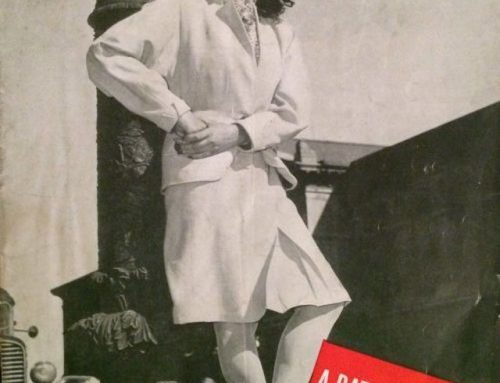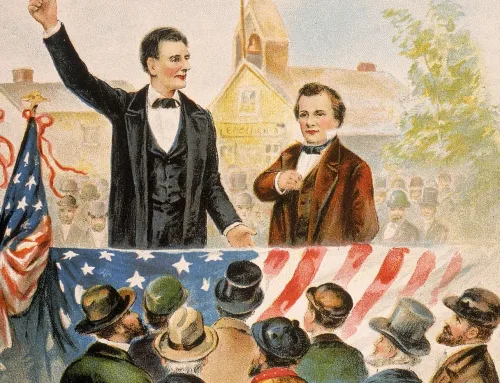By Adam K. Raymond
Banner photo by Maddie McGarvey
For Rust Belt Republicans on the ballot in 2018, is Donald Trump an assett or an albatross?
Depending on the relative redness of a candidate’s electorate, the answer can vary wildly, and can land everywhere inbetween. That’s led Republican primary winners in Illinois, Indiana, Ohio and Pennsylvania, the four Rust Belt states that have already decided their general election candidates, to handle the President with a variety of approaches.
In an effort to understand how the Rust Belt GOP is leaning, we took a look at seven candidates who’ve displayed varying levels of loyalty to Trump on their way to winning their primaries, and offer some guesses about their chances in November.

DeWine would apparently rather be photographed with this chihuahua than be caught with Trump. Photo credit: amandags3/Instagram
Mike DeWine, Republican nominee for Governor of Ohio
Trump scale: 2/10
Chances in November: According to the most recent polls, it’s too close to call.
The former U.S. Senator had a complicated relationship with Trump during the Republican primary. He claimed to be a “steadfast supporter,” he deployed a “lock her up” chant against his primary opponenet, Mary Taylor, for alleged misuse of a state airplane, but he also snubbed the President on his visits to Ohio. When an interviewer asked DeWine about one such absence from an Ohio Trump rally, he explained, “I was working, I had a set schedule and I did not, you know, change that.” But you could have been there? the interviewer asked. “Yes I could have been there,” was DeWine’s unapologetic reply.
DeWine’s lukewarm embrace of Trump provided an opening for Taylor, who labelled him “D.C. DeWine” and questioned his conservative credentials. If her goal was to attract a primary endorsement, it didn’t work. Trump stayed out of the Ohio governor’s race until the primary votes were counted.
Did DeWine’s arms-length approach to Trump help land him the nomination? If it did, he’ll have a tricky time sustaining that strategy in the general.
Did DeWine’s arms-length approach to Trump help land him the nomination? If it did, he’ll have a tricky time sustaining that strategy in the general: With Trump diehard Jim Renaicci as the GOP nominee for U.S. Senate in Ohio, expect the President to be in the state often.
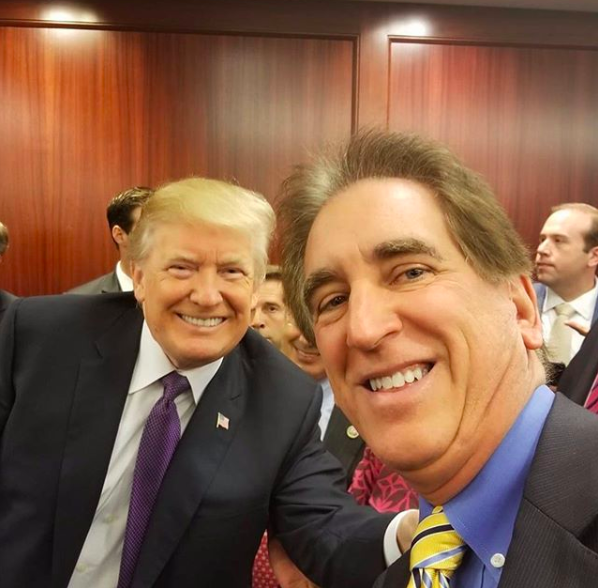
Unlike DeWine, Renacci will take every opportunity to remind you that he’s an ardent Trump supporter, including throwing up selfies with POTUS on his Instagram like a fanboy.
Jim Renacci, Republican nominee for U.S. Senate in Ohio
Trump scale: 10/10
Chances in November: Slim. Despite Ohio leaning red, incumbent Sen. Sherrod Brown’s popularity crosses party lines.
In early January, 10 months into his campaign to become Ohio’s next governor, Congressman Jim Renacci abruptly ended his bid. It was all because of Donald Trump. “When President @realDonaldTrump asks you to run — you do it,” Renacci tweeted, announcing his new bid for the U.S. Senate after State Treasurer Josh Mandel dropped out of the race.
The wealthy Wadsworth businessman, who made his money in nursing homes and car dealerships, positioned himself as the most pro-Trump candidate in the governor’s race. That didn’t change when he began his Senate campaign to advance “the President’s agenda.” Trump’s influence over Renacci, who was first elected to Congress in the 2010 Tea Party wave, was reflected in the candidate’s “Ohio First” slogan, Trump’s dominance in Renacci’s first campaign ad, and the Congressman’s palling around with the likes of Trump-world hanger-on Corey Lewandowski. He did everything but change his name to Ivanka.
Renacci is so committed to orange-nosing Trump that after he won the Senate primary he was sure to make the victory not about him, but about Trump.
Renacci is so committed to orange-nosing Trump that after he won the Senate primary he was sure to make the victory not about him, but about Trump. “Ohio is a Trump state,” he said. “Ohio is going to move forward with the Trump agenda, and Ohio is going to get anybody that’s an obstacle, including Sen. Brown, out of the way.”
So far, it’s not working: In the latest poll, Sherrod Brown has a 17-point lead over Renacci. Expect more conveniently scheduled family engagements for DeWine when Trump is in state?

Braun distinguished himself from his primary opponents by labeling them “swamp creatures” and aligning himself with the American worker. He even wore this blue-collared shirt (sans tie) to a primary debate. Photo via Mike Braun for Indiana commercial.
Mike Braun, Republican nominee for U.S. Senate in Indiana
Trump scale: 7/10
Chances in November: Decent. Incumbent Sen. Joe Donnelly is one of the most vulnerable Democrats in the Senate this year.
There were three men running for the GOP Senate nomination in Indiana this spring, and they all did their best to wrap themselves around Trump like a second combover. Rep. Todd Rokita wore a MAGA hat in his campaign ads and carted around a cardboard Trump cutout to campaign events. And Rep. Luke Messer nominated Trump for the Nobel Peace Prize for the summit with Kim Jong Un — more than a month before it actually took place. But it was businessman Mike Braun, an outsider who, like Trump, used his own fat bank account to fund his campaign, who earned the President’s endorsement and eventually the victory.
Braun repaid Trump for his endorsement by declaring his 30-minute ride with Trump “one of the neatest experiences of my life.”
It wasn’t just Braun’s personal story that mirrored Trump’s; he also aped the President’s language. He labeled Rokita and Messer “swamp creatures” and when Trump came to Elkhart in early May to endorse Braun, supporters were assured that he would go to Washington and “drain the swamp.” Allowed a moment at the microphone at the rally, Braun repaid Trump for his endorsement by declaring his 30-minute ride to the event with Trump “one of the neatest experiences of my life.”
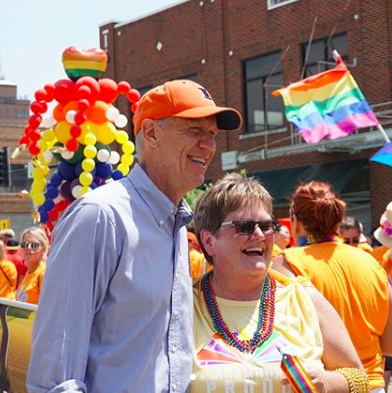
Posting a pic of yourself at a Pride Parade on your Instagram? Not exactly a Trump move.
Bruce Rauner, Republican nominee for Governor of Illinois (incumbent)
Trump scale: 0/10
Chances in November: Decent. He has the advantage of incumbency, but the challenges of an increasingly blue Illinois and billionaire opponent might be too much.
The Republican governor of a state that Hillary Clinton won by 17%, Rauner has walked a tightrope when it comes to President Trump. During the 2016 presidential campaign, that meant pulling a Melania and pretending that Trump didn’t exist.
That task became more difficult once Trump took office, but Rauner did his best to avoid appearing too close to the President, even skipping a dinner Trump hosted for the nation’s governors shortly after taking office. When he did speak Trump’s name, it was to criticize him over his “rhetoric,” including his lackluster response to last summer’s neo-Nazi rally in Virginia and his infamous “shithole countries” remark.
Come November, Rauner might be thanking Ives, his hard-right primary opponent. She spent months hammering him for not being close enough to Trump, which might be just what he needs to win a general election in a state where Clinton won by nearly 1 million votes.
Rauner’s reluctance to embrace Trump left him open to a primary challenge from the right, and state lawmaker Jeanne Ives obliged. An unrepentant culture warrior, Ives didn’t just sidle up to Trump, she ran right past him with a wildy-transphobic ad. And it nearly worked. Rauner barely edged Ives out in the primary, winning by just 3 points.
Painful as the primary was, come November Rauner might be thanking Ives. She spent months hammering him for not being close enough to Trump, which might be just what he needs to win a general election in a state where Clinton won by nearly 1 million votes.
Scott Wagner, Republican nominee for Governor of Pennsylvania
Trump scale: 10/10
Chances in November: Slim. Incumbent Tom Wolf is the heavy favorite.
When Republican Scott Wagner made his first run for office in a 2014 State Senate special election, he wasn’t only fending off the Democrats; his own party came for him too. After endorsing another candidate, the Pennsylvania GOP ran ads against Wagner, attacking his wealth and his business — a waste hauling company — by dubbing him the “millionaire trashman,” an epithet that sounds much cooler than it was probably supposed to. Wagner won after orchestrating an historic write-in campaign and then immediately got his revenge, helping to oust the Republican Senate Majority Leader for not being conservative enough.
The Republican party’s reluctance to accept Wagner, married four times, is only the start of his similarities with Trump, married three times. Both are big-talking businessmen who’ve used their personal fortunes to fund their campaigns. They’ve questioned climate change, offended Jews (see above), and built reputations as unrepentant bullies. After he was elected, Wagner said he was bringing a “baseball bat” to the Senate to ensure things got done and he once roughed up a tracker for a progressive advocacy group. Like Trump, he’s survived all of these scandals and continued to win elections.
After he was elected to the State Senate, Wagner said he was bringing a “baseball bat” to ensure things got done.
Wagner has never shied away from the comparisons to Trump and when establishment Republicans in Pennsylvania were still considering their support of The Donald in the lead up to the 2016 election, Wagner said he was buying 20,000 Trump/Pence yard signs to hand out in his district. He’s talked about “draining the swamp” in Harrisburg, branded primary opponent Paul Mango “Lyin’ Paul,” and railed about non-existent voter fraud issues. The only thing left for Wagner to do in order to prove that he’s “Donald Trump light,” as he was introduced at a campaign event earlier this year, is to win Pennsylvania. But he’s got an uphill battle.
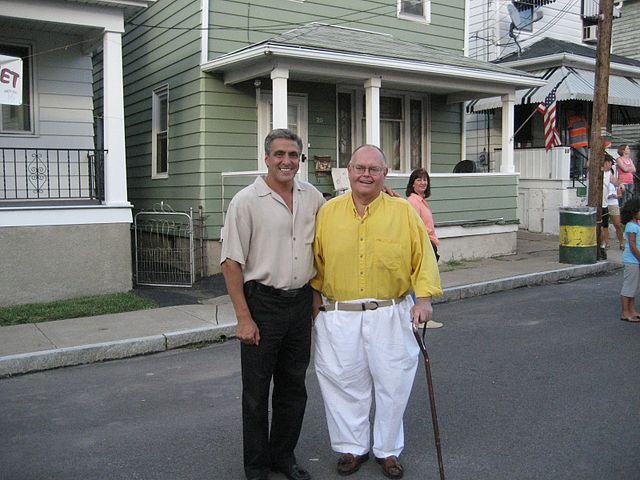
Barletta when he was mayor of Hazelton, PA, in 2009, where he made a name for himself as staunchly anti-immigration. Photo by Gort42/Wikimedia
Lou Barletta, Republican nominee for U.S. Senate in Pennsylvania
Trump scale: 7/10
Chances in November: Slim. Sen. Bob Casey is well ahead of Barletta in early polling.
A decade before Donald Trump won Pennsylvania, demolishing the so-called Blue Wall, the mayor of small-town Hazleton proved that there was an audience in the Keystone State for the type of anti-immigrant sentiment Trump rode to victory. That mayor was Lou Barletta, now a Congressman and the GOP nominee taking on Sen. Bob Casey in November.
Barletta’s infamous crackdown on undocumented immigrants came in 2007, during his second mayoral term as the demographics of Hazleton began to shift. With manufacturing jobs dying and low-wage warehouse jobs proliferating, the town’s Latino population soared from 4 percent to 38 percent between 2000 and 2006. After the death of a local, allegedly at the hands of undocumented laborers, Barletta spearheaded a discriminatory new law that made it illegal to hire or rent housing to undocumented immigrants. The law was eventually stricken in court but Barletta’s reputation as the GOP’s new anti-immigrant it-boy was secure.
Barletta spearheaded a discriminatory new law in Hazelton, PA, that made it illegal to hire or rent housing to undocumented immigrants … earning him a reputation as the GOP’s new anti-immigrant it-boy.
He was elected to the House in 2010 and in March 2016 he emerged as an early and enthusiastic Trump supporter. Barletta remained close to the campaign throughout 2016 and worked on Trump’s transition. He even earned an offer to serve as Labor Secretary but turned it down, perhaps unaware of all the perks that would come with serving in Trump’s cabinet.
Still, Trump remained in Barletta’s corner. During the primary, the President called the Congressman a “good friend,” “strong,” and “smart.” He recorded a robocall for Barletta ahead of his victory and the Congressman has already made it clear that he doesn’t plan to turn away from Trump in the general.
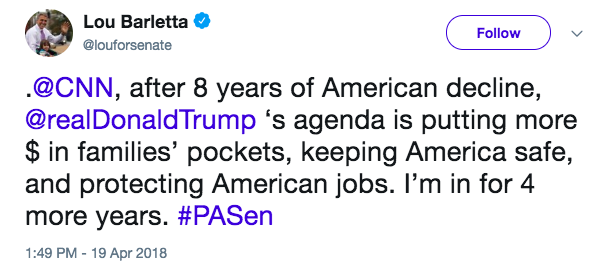
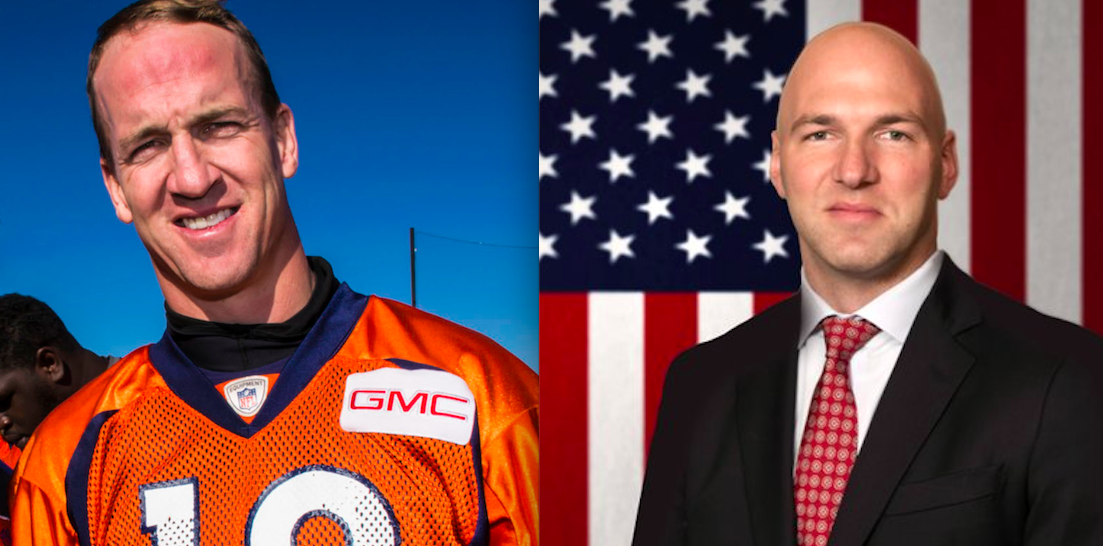
In Peyton Manning, Gonzalez may have a more influential supporter than Trump.
Anthony Gonzalez, Republican nominee for Ohio’s 16th Congressional District
Trump scale: 2/10
Chances in November: Good. After years of electing Renacci, not to mention GOP gerrymandering, Ohio’s 16th is a safe Republican seat.
Anthony Gonzalez is not anti-Trump. The former NFL wide receiver and Republican nominee for Ohio’s 16th Congressional District has praised Trump’s policies, his commitment to keeping promises, and defended him against the Russia investigation. But by running as the establishment candidate against Trump superfan and state lawmaker Christina Hagan, Gonzalez marked himself as the least MAGA candidate in the primary. As Buzzfeed put it, voters in the district, long represented by Rep. Jim Renacci, were given a choice between candidates “running like Trump never existed, or running just like him.”
By running as the establishment candidate against Trump superfan and state lawmaker Christina Hagan, Gonzalez marked himself as the least MAGA candidate in the primary.
Hagan was never shy about touting her Trump bona fides, campaigning with former White House gadflys Anthony Scaramucci and Sebastian Gorka. Gonzalez, meanwhile, was more of a standard Republican, mimicking Trump neither in style nor substance and campaigning alongside the likes of Peyton Manning, who, despite having accepted a golfing invitation from the President, told Jimmy Kimmel that he made sure Trump wouldn’t cheat. “I counted his strokes,” said Peyton. Pro Trump, but not blindingly so. Turns out that’s what voters in Ohio’s 16th wanted, too.
Banner photo: A Trump supporter in Warren, Ohio, ahead of the 2016 election. Photo by Maddie McGarvey.
Belt Magazine is not-for-profit and member-supported. To support more independent journalism made by and for the people of the Rust Belt, become a member of Belt Magazine starting at just $5 a month.




